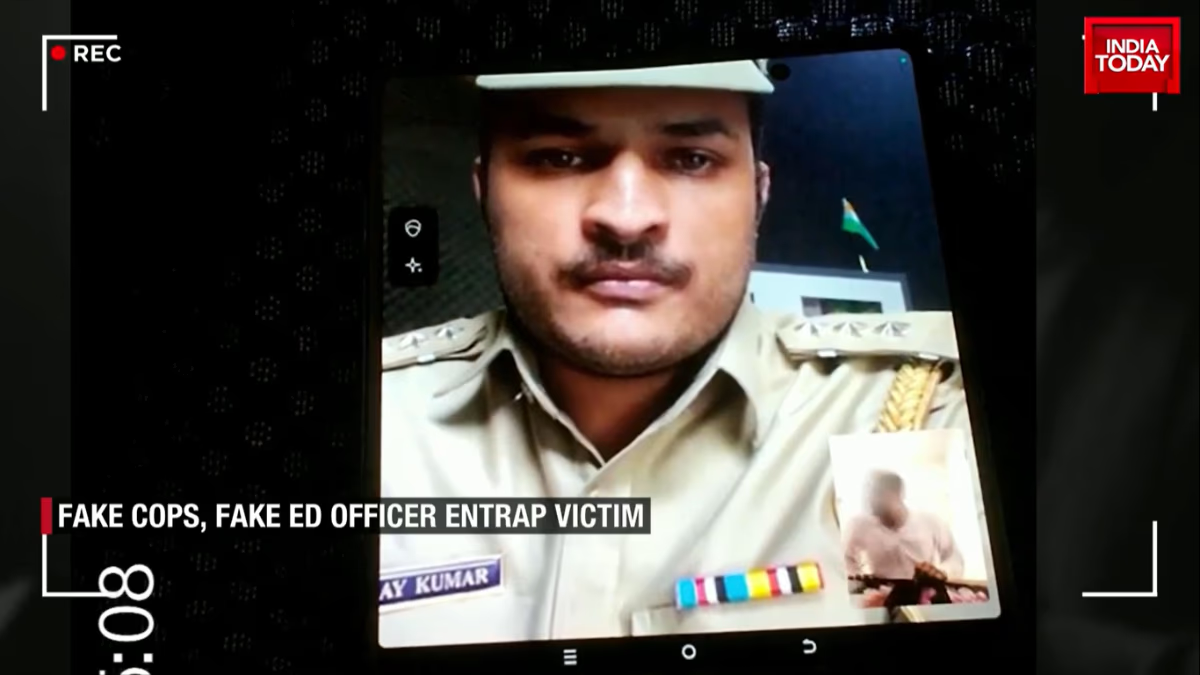In recent times, the nation has witnessed a surge in digital arrest scams, ensnaring high-profile professionals, bureaucrats, judges, businessmen, and even military officials. Typically, scammers pose as government officials, often claiming to be from investigative agencies.
They initially contact victims via phone calls, subsequently conducting video calls through WhatsApp and Skype to deceive them. Prime Minister Narendra Modi, in his recent 'Mann Ki Baat' program, advised citizens to remain vigilant against these scams, emphasizing the mantra 'Stop, Think, Act' when facing such cons. He also clarified that there is no legal concept of a 'digital arrest' under the law.
Read More:
Recently, Aaj Tak's Senior Assistant Editor Richa Mishra fell prey to a digital arrest scam. A purported call from a courier company falsely claimed her Aadhaar number was linked to a parcel associated with drugs. The scammer kept her on the line for an extended period before she realized she was a victim of digital arrest.
India Today Sting Operation
In response to the surge in digital arrest cases, India Today's Special Investigation Team conducted an undercover operation. The probe commenced when a courier company contacted a reporter, asserting that a parcel under their name was stuck in Mumbai. The scammer, posing as a DHL employee, claimed the parcel was dispatched from Mumbai to Beijing, but couldn't be delivered.
The scammer knew the reporter's identity, including their name, ID proof, and phone number, allegedly used for sending the parcel. The impostor, claiming to be a DHL employee, informed them that the parcel was seized by Mumbai customs.
The fraudulent DHL caller detailed the parcel's contents, including five credit cards, seven passports, 3.5 kilograms of clothing, 400 grams of MDMA, and some elements deemed illegal in India. The caller advised lodging a complaint and connected them via WhatsApp with a purported Mumbai police officer.
During the call, the fake officer expressed concerns over drug smuggling while questioning the reporter about the parcel. The officer threatened grave repercussions, stating, 'If just 10 grams were found, you'd face 3-7 years in prison, and your parcel contained 400 grams of substance.' Shocked, the reporter denied any connection to the parcel.

Source: aajtak
Still, the phony officer warned that situations could worsen if a body connected to the parcel was discovered. The imposter threatened, 'What if your name is linked to a weapon or corpse in the next hour? Would you sit idly at your office? Wouldn't this become a huge issue?'
The officer's intimidation tactic soared to new heights as he insisted on recording a video statement and demanded sensitive personal data, including Aadhaar details.
Claiming to be an IPS officer with 27 years of experience, the fake cop accused the reporter of involvement in a money laundering case linked to a business scam amounting to over 536 Crore INR. He alleged the reporter's name was associated with a Canara Bank account tied to these illegal activities, further entangling the reporter in the deceptive web.
Throughout the conversation, fake documents, labeled as National Secrets, were exhibited. The officer instructed silence, forbidding discussions about the case. As talks advanced, the scammer demanded the reporter undergo a 'purity test,' introducing another purported officer who presented an Enforcement Directorate (ED) warrant featuring the reporter's photo.
Read More: Doctor Arrested Digitally, Cheated of INR 48 Lakh Using Aadhaar Fraud
Eventually, the real con unfolded when another imposter sought a guarantee of INR 10 lakhs to evade further entrapment by the Indian government and the Supreme Court. The investigation climaxed with a startling exchange with a supposed female ED officer who provided illicit transaction details via WhatsApp.
What is a Digital Arrest Scam?
In digital arrest scams, fraudsters claim to be police or customs officers. When an audio call transitions to video, victims often see a mock police station setup, convincing them of speaking with legitimate officers.
Victims are accused of involvement in illegal activities; scammers use these false allegations to proclaim the person has been 'arrested.' They also showcase counterfeit documents to substantiate their digital arrest claims.




